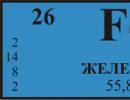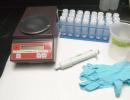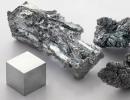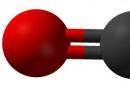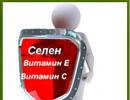Leningrad Institute of Chemical Technology named after Mendeleev. Basic information. Profiles included in this area of training
schedule Working mode:
Mon., Tue., Wed., Thu. from 10:00 to 17:00
Fri. from 10:00 to 16:00
Latest reviews of RKhTU im. DI. Mendeleev
Kristina Minina 17:40 04/25/2013In 2001 she entered Faculty of Economics quite prestigious and world-famous university - RKhTU im. D. I. Mendeleev. I entered on a contract basis, and passed moderately difficult exams. For the "state employees" the exams were more difficult, and the competition was about 3 people per seat. But after entering, everyone studied together and the conditions for everyone were the same. There were 3 groups in the course, each group had 20-23 students. The teachers are highly qualified, and you could only get grades, but...
Anonymous review 02:38 05.12.2012
I am studying at the Russian Chemical Technical University for the first time and so far I am satisfied. When I first got there, I had the impression that I was at Hogwarts, only the stairs did not move - everyone was in bathrobes, it was almost impossible to find an audience on their own. In the Tushino Corps, everything is somehow simpler. The university is falling apart before our eyes - there was no repair there, apparently from the day it was founded. The Miussky building has absolutely ancient equipment, but everything works, even strangely. But in general, it is interesting to study, they will not let you relax. I'm studying inorganic...
Gallery DI. Mendeleev


general information
Federal State Budgetary Educational Institution higher education"Russian chemical- University of Technology named after D.I. Mendeleev"
Branches of the RCTU them. DI. Mendeleev
License
No. 01930 is valid Indefinitely from 08.02.2016
Accreditation
No. 03153 valid from 06/19/2019
Monitoring results of the Ministry of Education and Science for the Russian Chemical Technical University named after. DI. Mendeleev
| Indicator | 2019 | 2018 | 2017 | 2016 | 2015 | 2014 |
| Performance indicator (out of 5 points) | 4 | 5 | 5 | 5 | 5 | 4 |
| Average USE score in all specialties and forms of education | 75.11 | 74.66 | 74.76 | 73.63 | 70.37 | 75.7 |
| Average USE score credited to the budget | 79.94 | 77.48 | 77.11 | 75.81 | 74.00 | 78.68 |
| Average USE score enrolled on a commercial basis | 62.88 | 56.08 | 59.27 | 58.38 | 54.03 | 58.73 |
| Average for all specialties minimum score USE enrolled in the full-time department | 52.42 | 51.6 | 50.6 | 54.98 | 44.72 | 48.22 |
| Number of students | 5948 | 5505 | 5260 | 5007 | 5099 | 4949 |
| full-time department | 5362 | 5036 | 4914 | 4675 | 4738 | 4543 |
| Part-time department | 187 | 151 | 142 | 120 | 137 | 185 |
| Extramural | 399 | 318 | 204 | 212 | 224 | 221 |
| All data | Report | Report | Report | Report | Report | Report |
About RKhTU im. DI. Mendeleev
Objectives and directions of educational activities of the RKhTU im. DI. Mendeleev
Russian University of Chemical Technology named after D.I. Mendeleev is one of the oldest higher educational institutions in the capital. Today, as well as 125 years ago, engineers of the highest class are being trained here.
RCTU conducts training in the field of advanced technologies and the chemical industry, these areas are decisive for the development of aviation, space industry, automotive industry, exact sciences and nanotechnology.
The teaching staff of the university relies on comprehensive education. Students must solve not only problems in science and industry, but also understand issues environment as well as society. The university trains specialists in such areas as sociology, information technology, industrial ecology, economics, chemistry and many others.
The main tasks of the RCTU include:
- Training of high-class specialists;
- Development of chemical technology in the field of education.
The Russian University of Chemical Technology provides multi-level education for bachelors, masters and specialists. Education for a bachelor implies training in the following specialties:
Chemical Technology; Technology of artistic processing of materials; Materials science and technology of materials; Technosphere safety; Informatics and Computer Engineering; Nanoengineering; Information Systems and technology; Jurisprudence; Management; Energy and resource saving processes in chemical technology, petrochemistry and biotechnology; Linguistics, and many others.
Upon receiving a bachelor's degree, a student can continue his studies for a master's degree on the basis of his native university.
Specialists are trained in the following areas:
- Fundamental and applied chemistry;
- Chemical technology of energy-saturated materials;
- Chemical technology of modern energy materials, and others.
The university keeps up with the times. So, in 2002, faculties of correspondence and distance learning were organized. For students of such groups, semi-annual sessions, two courses of lectures and practical exercises, the opportunity to attend weekend groups, and evening consultations with teachers are provided.
For those wishing to improve their qualification level, there is the possibility of obtaining a second higher education, on the job. All classes are held strictly according to an individual schedule, allowing you to combine work and study.
Information for applicants
RCTU them. DI. Mendeleev is interested in active applicants. During the academic year, the university hosts many olympiads, in which anyone can become a participant. The schedule of events is presented on the official website of the university. In addition to competitive competitions, under the auspices of the RCTU. DI. Mendeleev, festivals, trainings and projects of a chemical or technical nature are held.
Applicants can get acquainted with the life of the RCTU by visiting the open day. The program of such events usually includes a meeting with the teaching staff, presentation of faculties and specialties, answers to organizational questions. You can get basic knowledge and prepare for entering the university using the service pre-university training. So, future students can attend an evening chemistry or mathematics school.
For students who have not passed the competition, there is an opportunity to receive higher education on a paid basis.
student life
For RKhTU them. DI. Mendeleev is characterized by an active social life. The university regularly publishes the local newspaper "Mendeleevets", there is a historical museum, team sports events are held, and a student council functions. Excursion trips, charity visits to orphanages, student competitions and debates on the most pressing issues are regularly held for students.
To ensure the process of self-learning and the general development of students, there is a significant library array. Students can use the service of electronic familiarization with educational and scientific literature university, as well as use the services of third-party portals (CHEMISTRY and CHEMICAL ENGINEERING, Taylor & Francis Publishing, iBooks electronic library system).
Nonresident students of the university are provided with a paid hostel, designed for 450 places. It offers students 3 comfortable buildings, a full range of personal services, access to the Internet, cafes and food shops. Students can also use the services of a left-luggage office, a library, a gym. The university has its own sanatorium.
Scientific activity
RCTU them. DI. Mendeleev trains graduate students in five branches of science. This is:
- Chemical;
- biological;
- Technical;
- Economic;
- Social.
Practical and theoretical research is carried out in the Innovation and Technology Center of the Russian Chemical Technical University, the Testing Center "Khimtest", scientific laboratories, and the Technopark "Ekohimbiznes".
Russian University of Chemical Technology named after D.I. Mendeleev conducts an active scientific activity. Its main tasks include:
- development of the foundations of chemical theory and technology;
- development of educational methods;
- conducting research in the field of related sciences, humanities;
- development of industrial safety fundamentals;
- development of information technologies in the field of chemistry.
| Form of study | Source of financing | Completion of acceptance of documents | Dates entrance examinations conducted by RCTU independently* | Completion of acceptance of applications** for consent to enrollment | Enrollment |
|---|---|---|---|---|---|
| Full-time | 07/10/2020 (according to the results of entrance examinations) 07/26/2020 (until USE results) |
11.07.2020 - 26.07.2020 | 07/28/2020 (priority stage) 08/01/2020 (first stage) 08/06/2020 (second stage) |
07/29/2020 (priority stage) 08/03/2020 (first stage) 08/08/2020 (second stage) |
|
| Full-time | 08/15/2020 (according to the results of entrance examinations) 08/25/2020 (according to the results of the exam) |
17.08.2020 - 25.08.2020 | 27.08.2020 | 28.08.2020 | |
| Extramural | To the field through budget allocations | 15.08.2020 | 17.08.2020 - 25.08.2020 | 27.08.2020 | 28.08.2020 |
| Extramural | To places under contracts for the provision of paid educational services | 04.09.2020 | 07.09.2020 - 14.09.2020 | 16.09.2020 | 18.09.2020 |
| Part-time form | To places under contracts for the provision of paid educational services | 15.08.2020 | 17.08.2020 - 25.08.2020 | 27.08.2020 | 28.08.2020 |
* Entrance examinations conducted by the RCTU independently, have the right to take only certain categories of citizens
** Upon admission to places within check digits acceptance, the original document on education or on education and qualifications is attached to the application for consent to enrollment.
the minimum number of points;
information on the forms of entrance examinations conducted by the organization independently
For persons entering the base secondary general education, as the results of general educational entrance examinations, the results of USE.
RCTU DOES NOT CONDUCT ADDITIONAL ENTRY TESTS.
| Code and name of the direction of training and specialty |
Entrance tests (in order of priority) | Minimal amount points | The form of the entrance examinations conducted by the RCTU independently |
|---|---|---|---|
| 04.03.01 Chemistry (program Theoretical and experimental chemistry, program Organic and hybrid materials for energy conversion and storage) | 1. Chemistry | 40 | Testing |
| 2. Mathematics* | 39 | Testing | |
| 3. Russian language | 40 | Statement | |
| 04.05.01 Fundamental and applied chemistry | 1. Chemistry | 55 | Testing |
| 2. Mathematics* | 45 | Testing | |
| 3. Russian language | 50 | Statement | |
| 05.03.06 Ecology and nature management | 1. Geography (testing) | 45 | Testing |
| 2. Mathematics* | 39 | Testing | |
| 3. Russian language | 45 | Statement | |
| 09.03.01 Informatics and Computer Engineering | 1. Mathematics* | 39 | Testing |
| 2. Physics | 40 | Testing | |
| 3. Russian language | 40 | Statement | |
| 09.03.02 Information systems and technologies | 1. Mathematics* | 39 | Testing |
| 2. Informatics and ICT | 42 | Testing | |
| 3. Russian language | 45 | Statement | |
| 03/15/02 Technological machines and equipment (program Technological machines and equipment for the production of high-temperature functional materials, program Technological machines and equipment for polymer processing) | 1. Mathematics* | 39 | Testing |
| 2. Chemistry | 40 | Testing | |
| 3. Russian language | 40 | Statement | |
| 18.03.01 Chemical technology | 1. Mathematics* | 39 | Testing |
| 2. Chemistry | 45 | Testing | |
| 3. Russian language | 45 | Statement | |
| 18.03.02 Energy and resource saving processes in chemical technology, petrochemistry and biotechnology | 1. Mathematics* | 39 | Testing |
| 2. Chemistry | 43 | Testing | |
| 3. Russian language | 45 | Statement | |
| 18.05.01 Chemical technology of energy-saturated materials and products | 1. Mathematics* | 39 | Testing |
| 2. Chemistry | 45 | Testing | |
| 3. Russian language | 45 | Statement | |
| 18.05.02 Chemical technology of modern energy materials | 1. Mathematics* | 45 | Testing |
| 2. Chemistry | 45 | Testing | |
| 3. Russian language | 45 | Statement | |
| 19.03.01 Biotechnology | 1. Mathematics* | 39 | Testing |
| 2. Chemistry | 50 | Testing | |
| 3. Russian language | 45 | Statement | |
| 20.03.01 Technosphere safety | 1. Mathematics* | 39 | Testing |
| 2. Chemistry | 45 | Testing | |
| 3. Russian language | 45 | Statement | |
| 22.03.01 Materials science and technology of materials | 1. Mathematics* | 39 | Testing |
| 2. Chemistry | 45 | Testing | |
| 3. Russian language | 45 | Statement | |
| 27.03.01 Standardization and metrology (Standardization and certification program) | 1. Mathematics* | 39 | Testing |
| 2. Chemistry | 40 | Testing | |
| 3. Russian language | 40 | Statement | |
| 28.03.02 Nanoengineering | 1. Mathematics* | 39 | Testing |
| 2. Chemistry | 45 | Testing | |
| 3. Russian language | 45 | Statement | |
| 28.03.03 Nanomaterials | 1. Mathematics* | 39 | Testing |
| 2. Chemistry | 45 | Testing | |
| 3. Russian language | 45 | Statement | |
| 29.03.04 Technology of artistic processing of materials | 1. Mathematics* | 39 | Testing |
| 2. Chemistry | 45 | Testing | |
| 3. Russian language | 45 | Statement | |
| 38.03.02 Management | 1. Mathematics* | 39 | Testing |
| 2. Social studies | 44 | Testing | |
| 3. Russian language | 45 | Statement | |
| 45.03.02 Linguistics | 1. Foreign language | 40 | Testing |
| 2. History | 40 | Testing | |
| 3. Russian language | 45 | Statement |
Entrance examinations are held in Russian, with the exception of entrance examinations in foreign language
| Achievement name |
Score for achievement* |
|---|---|
|
Having the status of a champion and prize-winner of the Olympic Games, Paralympic Games and Deaflympics, world champion, European champion, person who won first place at the World Championship, European Championship in sports included in the programs of the Olympic Games, Paralympic Games and Deaflympics |
5 |
|
Having a high school diploma general education with honors, or a certificate of secondary (complete) general education for those awarded with a gold medal, or a certificate of secondary (complete) general education for those awarded with a silver medal** |
5 |
|
Having a high school diploma vocational education With Honours** |
5 |
|
The results of the participation of applicants in the Olympiads (not used to obtain special rights and (or) benefits when applying for training on specific conditions of admission and specific grounds for admission) and other intellectual and (or) creative competitions, physical culture events and sports events held in order to identify and support for individuals who have shown outstanding abilities. Taken into account if: |
|
|
10 |
|
10 |
|
10 |
|
10 |
|
8 |
|
5 |
|
6 |
|
5 |
|
4 |
|
6-8 |
|
8 |
|
8 |
|
8 |
|
The status of the winner of the championship in professional skills among the disabled and people with disabilities "Abilimpiks" |
7 |
*Behind individual achievements no more than 10 points in total can be awarded to an applicant
**Points are awarded in the presence of documents, samples of which are established by the Ministry of Education and Science of Russia
The documents required for admission to the parent organization can be sent to the RCTU in electronic form.
RKhTU does not conduct entrance examinations using remote technologies
Applicants to RKhTU them. DI. Mendeleev (leading university) do not undergo a preliminary medical examination (examination)
RCTU named after D.I. Mendeleev: 125047 Moscow, Miusskaya sq., 9. Directions to the metro station “Novoslobodskaya” or “Mendeleevskaya”
Novomoskovsk Institute (branch): 301665 Tula region, Novomoskovsk, st. Druzhby, 8. Travel by buses No. 6, 21, 150 to the stop "Institute".
RCTU named after D.I. Mendeleev: 125047 the Russian Federation, Moscow, Miusskaya sq., 9
Novomoskovsk Institute (branch): 301665 Russian Federation, Tula region, Novomoskovsk, st. Druzhby, 8, Selection committee of NR RKhTU
The documents required for admission to the parent organization can be sent to the RCTU in electronic form to the email address
All non-resident students are provided with places in hostels.
Number of seats - 500 seats
There are 758 residential blocks in three buildings of dormitories. Each residential block for 5 people has: two living rooms with an area of 12.1 m 2 and 18.5 m 2, respectively, a bathroom with an area of 0.8 m 2, a bathroom 2.1 m 2 and a corridor 3.3 m 2 The size of living space per one resident is 6 m 2 .
In each building of the hostel, on each floor there is a shared kitchen with an area of 18.8 m 2 equipped with electric stoves and dining tables.
RCTU, or as it is usually called by students of this university and Muscovites Mendeleev University, is one of the most famous educational institutions our country. Within its walls, for more than a century, specialists have been trained in many specialties. At the same time, today one can hear both positive and negative feedback from students about this university, which, together with objective information about the RCTU, may be interesting and useful to applicants.
History of D. Mendeleev University
Moscow Mendeleev University has a long history dating back to the opening of the Industrial School in Moscow in 1898. For the construction of buildings and technical equipment of the new educational institution large sums were spent, so at the time of its foundation it was rightfully considered one of the most advanced in Europe and in the world. After the revolution, the Industrial School was transformed first into the Chemical College, and then into the Dmitri Mendeleev Institute. During the Second World War, some of the students and teachers of the university were evacuated, but a branch of the Moscow Chemical Technology Institute continued to operate in the capital. As regards the development of the institute in post-war years, then during this period new buildings were built and the Novomoskovsky branch was formed. And, finally, in 1992 this university was transformed into the Russian University of Chemical Technology.
general information

Today, about 10,000 students study at RCTU, including more than 300 citizens of 30 foreign countries. In addition, almost 500 graduate students and several hundred applicants for scientific degrees are preparing to defend dissertations at the university. Mendeleev University is proud of its highly qualified scientific and teaching staff, which includes 11 corresponding members of the Russian Academy of Sciences and academicians, more than 220 professors and doctors of sciences, as well as about 550 associate professors and candidates of sciences. According to students, most of them are satisfied with their teachers, however, many note that there is a need to attract young professionals with new thinking and bold ideas. There are especially many people who are dissatisfied with the lack of “fresh personnel” at the Faculty of IT&U.
Training units
Mendeleev University has four institutes:
- Materials of modern energy and nanotechnology.
- Economics and management.
- Chemistry and sustainable development issues.
- Institute of Professional Development.
In addition, the Novomoskovsk Institute named after D. Mendeleev, three higher college, departments of magistracy and correspondence, as well as two evening schools and a pre-university training center.
There are 10 faculties at the D. Mendeleev University of Chemical Technology of Ukraine, and it accepts students for training in the following specialties:
- Fundamental and applied chemistry.
- Materials science and technology of materials.
- Nanomaterials.
- Nanoengineering.
- Standardization and metrology.
- Jurisprudence.
- Management.
- Linguistics.
- Chemistry.
- Sociology, etc.
Many students in their comments express bewilderment about the need to have faculties in a chemical university that provide non-core, for example, sociological education.

Mendeleev University: Admissions Committee
AT last years there has been an increase in the number of people wishing to enter the Dmitri Mendeleev Russian Chemical Technical University. To do this, applicants should contact the admissions office of this university at d. 9. Opening hours: from 10:00 to 16:00 (only on weekdays). To get to Miusskaya Square, you can use the metro or ground public transport. The selection committee also operates in the Novomoskovsk branch of the RCTU. Its address: Novomoskovsk, Tula region, Druzhby street, 8 (working hours are the same as in the head university).
Reviews of applicants and students confirm that the admission committee Mendeleev University includes friendly and knowledgeable specialists who readily advise young people who are going to enter this university on all issues that arise.
The procedure for enrolling students
Mendeleevsky enrolls students in accordance with the established procedure. At the same time, some applicants enter this university without entrance examinations. The rest are credited “by competition”. Lists of applicants without passing the entrance examinations are ranked according to the personal achievements of a particular applicant. As for the competitive lists, they are first of all ordered in descending order of competitive points (in total). In the case of their equality, again, the individual achievements of a particular applicant in studies and sports are taken into account. It should be noted that there are practically no comments from students about the unfair or incorrect formation of the lists of applicants.

Reception of foreign citizens
As already mentioned, Mendeleev University also provides training for foreigners. Enrollment of this category of applicants is carried out in accordance with regulations, federal laws and international treaties.
In RKhTU them. D. I. Mendeleev, compatriots are also accepted (persons residing on the territory of the states-republics former USSR), Foreign citizens and stateless persons residing on the territory of the Russian Federation.
Corps RCTU

Those who want to enroll in Mendeleev students on the state of some buildings may be forced to reconsider their decision. However, students' stories about outdated equipment and dilapidated furniture relate mainly to the oldest buildings of the university. In general, the RCTU consists of the following complexes: Miussky, Tushinsky, the Shelepikha complex, the Central Chemical Library and the Novomoskovsky branch. Main building The university is located in the Miussky complex, it houses two assembly halls and the famous Aquarium hall. According to students, many rooms, including classrooms, in the main complex on Miusskaya Square are quite dirty, and repairs are usually done only in the largest classrooms. As for the Tushino complex, it includes an educational laboratory and buildings of several research institutes of the Russian Chemical Technical University, as well as a large classroom block. According to students, the main drawback of the Tushinsky building is its inconvenient location, but otherwise the new complexes are in fairly good condition.
Campus
Mendeleev University (Moscow) has a campus located near the Tushino complex on Vilis Latsis Street. The campus includes 3 buildings of student dormitories, as well as the SKK, with an assembly hall and a large gym. In addition, there is a library on the campus, several shops, canteens and buffets, as well as a sanatorium. In total, more than three thousand students and about 150 teachers live in dormitories. Judging by the feedback from students, the living conditions on the campus correspond to generally accepted standards. However, many students point to the lack of shared kitchens.

Moscow Institute of Chemical Technology
| Russian University of Chemical Technology named after D. I. Mendeleev | |
|---|---|
| (RCTU) | |
| international name | Mendeleev University of Chemical Technology of Russia |
| Year of foundation | 1880 |
| The president | academician of the Russian Academy of Sciences P. D. Sarkisov |
| Rector | Doctor of Technical Sciences, Professor V. A. Kolesnikov |
| Location | Moscow |
| Legal address | 125047, Moscow A-47, Miusskaya sq., 9 (1st Miusskaya st. 3). |
| Website | http://www.muctr.ru |
Russian University of Chemical Technology D. I. Mendeleev (RCTU) is one of the leading chemical universities in Russia and trains specialists in a variety of specialties, both technical and humanitarian. The number of students is about 10,000.
Story
In the city of MPU it was transformed into the Moscow Chemical College. In the city, the technical school was named after D. I. Mendeleev, and in 1920 the technical school was reorganized into the Moscow Institute of Chemical Technology (MKhTI) named after. D. I. Mendeleev. In 1992, the institute became a university - RKhTU im. D. I. Mendeleev.
In the 1970s, the institute received an additional building at 6, Prichalny proezd (metro station Polezhaevskaya). The Faculty of Military Training and the Department of Labor Protection are located there. In 1984, 3 more buildings were built at st. Geroev-Panfilovtsev, 20. The Faculty of Engineering Physics and Chemistry, Engineering Chemical Technology and Silicate Faculty moved there. In September 2008, a new university building was put into operation on the street. Heroes of Panfilov.
Educational divisions of RCTU
Institutes
- Institute of Chemistry and Sustainable Development
- Institute of High-Temperature Materials and Technologies (former Faculty of Chemical Technology of Silicates)
- (former Engineering Physics and Chemistry Faculty)
- International Institute of Logistics, Resource Saving and Technological Innovation
Faculties
- Faculty of Technology not organic matter
- Faculty of Technology of Organic Substances and Chemical Pharmaceuticals
- Faculty of Chemical Technology of Polymers
- Faculty of Economics
- Faculty of Environmental Engineering
- Faculty of Information Technology and Management
- Faculty of Engineering Chemical Technology
- Faculty of Natural Sciences
- Evening Faculty
- Faculty of Humanities
- Faculty of Military Training
- Department of Bachelor's and Master's Studies
higher colleges
- Higher College of Environmental Management (as part of the Institute of Chemistry and Sustainable Development)
- Higher Chemical College of the Russian Academy of Sciences (as part of the Institute of Chemistry and Sustainable Development Problems)
- International Higher Chemical College for Composite Materials
- Higher College "Technical Design of Products from Silicate Materials"
Links
- Official site of the Academic large choir of the Russian Chemical Technical University named after. D. I. Mendeleev
Wikimedia Foundation. 2010 .
See what the "Moscow Institute of Chemical Technology" is in other dictionaries:
See Russian University of Chemical Technology… Large encyclopedic Dictionary
See Russian University of Chemical Technology. * * * MOSCOW CHEMICAL TECHNOLOGICAL INSTITUTE MOSCOW CHEMICAL TECHNOLOGICAL INSTITUTE, see Russian University of Chemical Technology (see RUSSIAN CHEMICAL TECHNOLOGICAL UNIVERSITY) ... encyclopedic Dictionary - (State University) (MIPT (GU)) ... Wikipedia
One of the leading Soviet educational and scientific centers in the field of training specialists for the food industry and the procurement system, food engineering and the microbiological industry. Founded in 1930 on the basis of the Faculty of Food ... ... Great Soviet Encyclopedia
Name of the Lensoviet. Technological Institute named after Lensoviet. St. Petersburg. Lensoviet Technological Institute (LTI) (Moskovsky Prospekt, 26), one of the oldest domestic technological universities, a major research center. Founded… … Encyclopedic reference book "St. Petersburg"
1) named after the Lensovet (LTI) (Moskovsky prospect, 26), one of the oldest domestic technological universities, a major research center. Founded in 1828 as the St. Petersburg Practical Institute; since 1896 Institute of Technology. Modern … St. Petersburg (encyclopedia)
This page or section is believed to be copyright infringing. Its content is probably copied from http://stankin.ru/ with virtually no changes. Please check... Wikipedia


